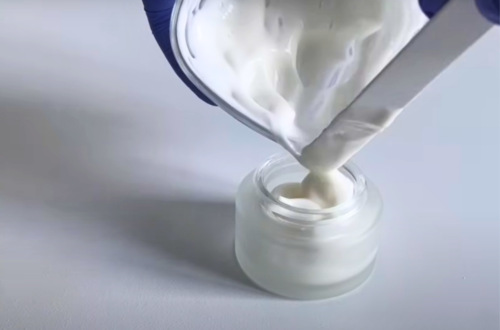
How Kill Tooth Pain Nerve: Temporary & Permanent Methods
Tooth pain can be excruciating and disruptive. Temporary relief methods include using clove oil, which has natural analgesic properties, and applying a cold compress to reduce inflammation. Over-the-counter pain relievers like ibuprofen can also help manage discomfort. For a permanent solution, a dentist might suggest procedures such as a root canal to remove the infected nerve.
Understanding Tooth Pain Nerve
Understanding how to kill tooth pain nerve effectively, both temporarily and permanently, is crucial. This section will delve into the intricacies of tooth nerve pain, offering insights into its causes and the significance of addressing it promptly.
What Causes Tooth Nerve Pain?
Tooth nerve pain, often described as sharp and throbbing, can stem from various factors. Identifying the root cause is essential for effective treatment.
Common causes include:
- Cavities: Bacterial infections create holes in the teeth, exposing the nerve.
- Gum Disease: Inflammation and infection of the gums can affect the tooth’s nerve.
- Tooth Fractures: Cracks or breaks can expose the nerve, leading to pain.
- Dental Procedures: Recent fillings or other dental work can irritate the nerve.
- Abscess: Pus-filled infections can press on the nerve, causing severe pain.
These factors contribute to nerve exposure, resulting in intense discomfort. Recognizing these causes helps in choosing the right treatment method.
Why It’s Important To Address Nerve Pain Quickly
Ignoring tooth nerve pain can lead to more severe complications. Quick action is necessary to prevent the pain from worsening and to safeguard overall dental health.
Here are the reasons why prompt attention is crucial:
- Prevent Infection Spread: Untreated nerve pain can lead to infections spreading to other parts of the mouth or body.
- Avoid Tooth Loss: Persistent pain might indicate severe decay that could result in tooth loss if not treated.
- Reduce Pain: Early intervention can alleviate discomfort, allowing you to continue daily activities without disruption.
- Maintain Oral Health: Addressing the root cause of the pain helps maintain overall oral hygiene and health.
- Cost-Effective: Early treatment can be less expensive compared to dealing with advanced dental issues.
By addressing tooth nerve pain quickly, you can avoid long-term complications and ensure a healthier, pain-free life.
Temporary Methods For Quick Relief
Temporary methods can provide the much-needed respite until you consult a dentist for a permanent solution. Here are some effective ways to kill tooth pain nerve temporarily.
Cold Compress
Using a cold compress is a simple yet effective method to reduce tooth pain. The cold helps numb the area, reducing swelling and inflammation. Follow these steps for relief:
- Wrap ice in a cloth: Never apply ice directly to the skin to avoid frostbite.
- Apply to the cheek: Hold the cold compress against the affected area for 15-20 minutes.
- Repeat as needed: You can use the cold compress multiple times throughout the day.
The cold compress works by constricting blood vessels, which reduces blood flow to the area and thus minimizes swelling and pain.
Clove Oil
Clove oil has natural anesthetic and antibacterial properties, making it an excellent choice for tooth pain relief. Here’s how to use it:
- Soak a cotton ball: Dip a cotton ball in clove oil.
- Apply to the affected area: Place the cotton ball on the painful tooth or gum.
- Let it sit: Leave it for a few minutes to allow the oil to take effect.
Clove oil contains eugenol, a compound known for its pain-relieving and anti-inflammatory properties. Be cautious, as clove oil can be potent and might cause irritation if used excessively.
Salt Water Rinse
A salt water rinse is a quick and easy method to relieve tooth pain. It helps clean the affected area and reduce swelling. Follow these steps:
- Mix salt with warm water: Dissolve 1 teaspoon of salt in a glass of warm water.
- Swish the solution: Rinse your mouth with the salt water for 30 seconds.
- Repeat as necessary: Do this several times a day for best results.
The salt water rinse acts as a natural disinfectant, helping to remove food particles and reduce bacteria in the mouth. This can alleviate pain and promote healing.
Over-the-counter Painkillers
Over-the-counter painkillers can provide quick relief from tooth pain. Common options include:
| Medication | Dosage | Effectiveness |
|---|---|---|
| Ibuprofen | 200-400 mg every 4-6 hours | Reduces inflammation and pain |
| Acetaminophen | 500-1000 mg every 4-6 hours | Relieves pain |
Always follow the recommended dosage instructions on the package. Over-the-counter painkillers can help manage pain temporarily until you can see a dentist.
These medications work by blocking pain signals to the brain, providing temporary relief from tooth pain.

Permanent Methods For Tooth Nerve Pain
Tooth nerve pain can be debilitating, but there are effective permanent solutions. These methods not only alleviate pain but also enhance your overall dental health. Let’s dive into some of the most reliable permanent methods for tooth nerve pain.
Root Canal Treatment: What To Expect
A root canal treatment is often the go-to solution for severe tooth nerve pain. This procedure removes the infected or damaged nerve, providing permanent relief. Here’s what you can expect during a root canal treatment:
- Initial Consultation: Your dentist will examine your tooth and take X-rays to assess the extent of the damage.
- Local Anesthesia: To ensure you feel no pain during the procedure, your dentist will numb the affected area.
- Removal of Infected Tissue: The dentist will create an opening in the tooth and remove the infected or damaged pulp.
- Cleaning and Shaping: The inside of the tooth will be cleaned and shaped to prepare it for filling.
- Filling the Tooth: A rubber-like material called gutta-percha is used to fill the cleaned-out space, and the opening is sealed.
- Final Restoration: Often, a crown is placed over the tooth to restore its function and appearance.
This treatment has a high success rate and can save your natural tooth, eliminating the pain permanently.
Tooth Extraction: When It’s The Best Option
In some cases, a tooth extraction might be the best option to relieve nerve pain. Here’s when extraction is considered:
- Severe Damage: If the tooth is too damaged to be saved, extraction is the recommended solution.
- Advanced Decay: When decay reaches the pulp and root, and other treatments are not viable.
- Overcrowding: Sometimes teeth need to be removed to make room for others, especially before orthodontic treatments.
Here’s a step-by-step overview of a tooth extraction procedure:
- Consultation: Your dentist examines the tooth and discusses the procedure with you.
- Anesthesia: Local anesthesia is applied to numb the area around the tooth.
- Extraction: The dentist uses specialized tools to remove the tooth.
- Aftercare: You’ll receive instructions on how to care for the extraction site to promote healing.
While extraction is more invasive, it effectively removes the source of pain permanently.
Dental Fillings Or Crowns For Long-term Pain Relief
Dental fillings or crowns can provide long-term relief from tooth nerve pain. These treatments restore the tooth’s structure and protect the nerve. Here’s how they work:
- Dental Fillings: Used for smaller areas of decay, fillings seal the tooth and prevent further damage.
- Dental Crowns: Crowns cover the entire tooth, offering protection and restoring its function.
The process involves:
- Decay Removal: The dentist removes the decayed portion of the tooth.
- Preparation: The tooth is prepared for the filling or crown.
- Placement: The filling or crown is placed and bonded to the tooth.
This method not only alleviates pain but also strengthens the tooth, providing long-term benefits.
Addressing Nerve Pain Through Regular Dental Care
Regular dental care plays a crucial role in preventing and addressing tooth nerve pain. Here’s how:
- Routine Checkups: Regular visits to the dentist help identify and treat issues before they become severe.
- Proper Oral Hygiene: Brushing twice a day, flossing, and using mouthwash keep your teeth and gums healthy.
- Preventive Treatments: Fluoride treatments and dental sealants protect teeth from decay and damage.
Maintaining a good dental care routine can significantly reduce the risk of nerve pain.
Here are some tips for effective dental care:
- Brush Properly: Use a soft-bristled toothbrush and fluoride toothpaste.
- Floss Daily: Remove plaque and food particles between teeth.
- Limit Sugary Foods: Reduce the intake of sweets and sugary drinks.
- Stay Hydrated: Drink plenty of water to keep your mouth clean.
By taking these steps, you can ensure your teeth remain healthy and pain-free.

Myths About Killing Tooth Pain Nerve In Seconds
Many people seek quick fixes to relieve the pain. One common myth is that you can kill the tooth pain nerve in seconds.
Can You Really Kill Tooth Pain Nerve In 3 Seconds?
Many believe that you can kill a tooth pain nerve in just 3 seconds. This idea is popular on social media and some websites. But is it true?
Killing a tooth pain nerve in seconds is unrealistic. A nerve is a complex structure. It’s not something you can easily disable without medical intervention. Here are some reasons why:
- Medical procedures take time: Dentists use specific tools and techniques.
- Home remedies are limited: They may provide temporary relief but not a permanent solution.
- Nerve location: The nerve is deep within the tooth, making quick access difficult.
People often try various methods like ice, clove oil, or over-the-counter painkillers. These might work for a short time but won’t kill the nerve. Let’s look at some common myths:
| Myth | Reality |
|---|---|
| Ice can kill the nerve | Ice can numb the area temporarily but won’t kill the nerve. |
| Clove oil kills the nerve | Clove oil can provide temporary relief but won’t reach the nerve. |
| Over-the-counter painkillers | Painkillers can reduce pain but won’t eliminate the nerve. |
Real solutions involve seeing a dentist. Procedures like root canals or extractions are needed to kill the nerve permanently.
Understanding The Limits Of Home Remedies
Home remedies can offer temporary relief. They can’t provide a permanent solution for tooth pain. Knowing their limits is essential.
Common home remedies include:
- Saltwater rinse
- Hydrogen peroxide rinse
- Garlic paste
- Tea bags
These methods may reduce inflammation or numb the pain temporarily. They don’t reach the nerve to kill it. Here’s why:
- Surface treatment: Most remedies treat the surface and not the deep-rooted nerve.
- Temporary effects: Any relief is short-lived. Pain often returns.
- Infection risk: Improper use can lead to infections.
Take saltwater rinse, for example. It helps clean the mouth and reduce swelling. It won’t kill the nerve. Hydrogen peroxide rinse may reduce bacteria but can cause irritation if used too much.
Garlic paste has antibacterial properties. It might reduce pain momentarily but not kill the nerve. Tea bags can reduce swelling but, again, won’t kill the nerve.
For permanent relief, seek professional help. Dentists can provide treatments that home remedies can’t match.
Preventive Measures
While there are both temporary and permanent methods to kill tooth pain nerves, preventive measures can save you from such agony. By adopting a few simple habits, you can significantly reduce the chances of tooth pain.
Regular Dental Check-ups
Regular dental check-ups are crucial for maintaining oral health. Visiting the dentist at least twice a year allows early detection of potential issues, preventing them from becoming severe. Dentists can identify cavities, gum disease, and other problems that could lead to tooth pain.
Here are some benefits of regular dental visits:
- Early detection of cavities: Small cavities can be treated easily before they cause pain.
- Professional cleaning: Removes plaque and tartar that regular brushing can’t.
- Gum disease prevention: Dentists can spot early signs of gum disease, which can cause tooth pain.
- Oral cancer screening: Early detection can save lives.
Regular check-ups also help in maintaining the overall health of your teeth and gums, making them less prone to infections and pain. Here’s a simple table outlining the recommended frequency of dental visits:
| Age Group | Frequency of Visits |
|---|---|
| Children (3-12 years) | Every 6 months |
| Teens (13-19 years) | Every 6 months |
| Adults (20+ years) | Every 6 months |
Regular dental check-ups are a small investment for a pain-free and healthy mouth.
Good Oral Hygiene Habits
Good oral hygiene habits are the foundation of a healthy mouth. Brushing and flossing regularly can prevent most dental issues. Brush your teeth at least twice a day using fluoride toothpaste. Fluoride helps to strengthen tooth enamel, making it less susceptible to decay.
Effective oral hygiene habits include:
- Brushing twice daily: Use a soft-bristled toothbrush and fluoride toothpaste.
- Flossing daily: Removes food particles and plaque from between teeth.
- Mouthwash: Use an antibacterial mouthwash to kill germs and freshen breath.
- Healthy diet: Limit sugary and acidic foods that can erode enamel.
- Hydration: Drink plenty of water to wash away food particles and bacteria.
Maintaining good oral hygiene can prevent cavities, gum disease, and other dental problems that lead to tooth pain. Here’s a quick checklist to help you stay on track:
| Task | Frequency |
|---|---|
| Brushing | Twice daily |
| Flossing | Once daily |
| Mouthwash | Once daily |
| Dental Check-ups | Every 6 months |
Good oral hygiene habits not only prevent tooth pain but also contribute to overall health. Start today and keep your smile pain-free!




